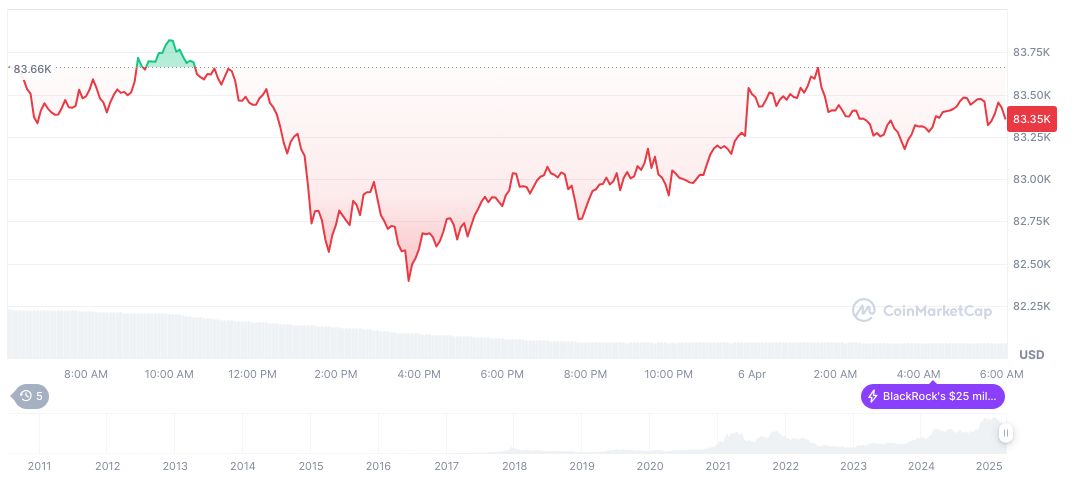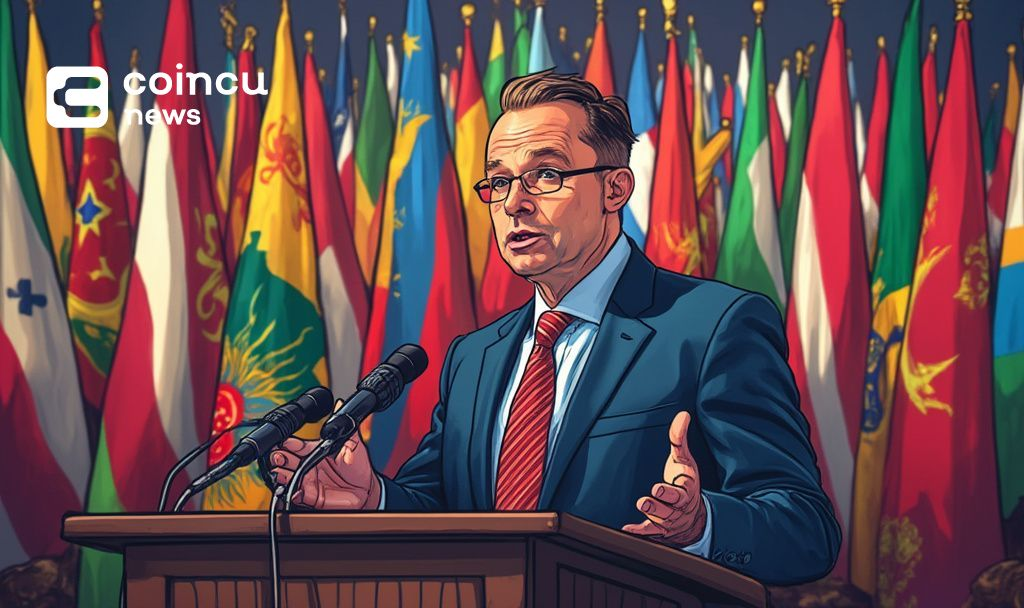 CaryptosHeadlines Media Has Launched Its Native Token CHT.
Airdrop Is Live For Everyone, Claim Instant 5000 CHT Tokens Worth Of $50 USDT.
Join the Airdrop at the official website,
CryptosHeadlinesToken.com
CaryptosHeadlines Media Has Launched Its Native Token CHT.
Airdrop Is Live For Everyone, Claim Instant 5000 CHT Tokens Worth Of $50 USDT.
Join the Airdrop at the official website,
CryptosHeadlinesToken.com
- Kevin Hassett emphasizes balance in U.S. trade strategies.
- Over 50 countries initiate negotiations with the U.S.
- U.S. holds off tariffs on Russia amidst negotiations.
Kevin Hassett, Director of the U.S. National Economic Council, announced on April 6 that more than 50 countries have approached the White House for initiating trade negotiations.
This announcement comes amid global trade tension, highlighting the U.S.’s cautious approach to maintaining economic stability, especially with its decision against imposing tariffs on Russia.
U.S. Engages Over 50 Nations in Trade Talks
Kevin Hassett, a seasoned economist and the Director of the National Economic Council, noted an increased interest from over 50 countries to engage in U.S. trade negotiations. Hassett’s statement further underscored that President Trump is prioritizing economic stability amidst strategic trade policies.
Immediate implications include potential fluctuations in U.S. employment figures as new trade agreements are pursued. The decision to withhold tariffs on Russia demonstrates an approach favoring negotiated solutions over unilateral actions, amid broader international conflict with Ukraine.
Kevin Hassett, Director of the National Economic Council, U.S., cited that “over 50 countries have approached the White House to initiate trade negotiations.”
Crypto Impacts of U.S. Trade Strategies
Did you know? The pause on tariffs against Russia is seen as a potential stabilizer, reflecting similar decisions in past U.S.-China trade tensions that affected digital asset markets.
Bitcoin’s current price stands at $82,529.35, with a market cap reported at $1.64 trillion. Accumulating trading volume over the past 24 hours shows a 53.73% decline, a relevant metric amidst recent policy announcements. With Bitcoin holding 62.23% market dominance, fluctuations in its price (-0.30% change in 24 hours) highlight ongoing market volatility (source: CoinMarketCap).


Insights from the Coincu research team suggest that the U.S.’s diplomatic engagements may lead to softened regulatory environments, enhancing technological collaboration. Such strategies could promote wider adoption of blockchain solutions, offering potential growth avenues for cryptocurrency-related protocols amidst evolving trade landscapes.












